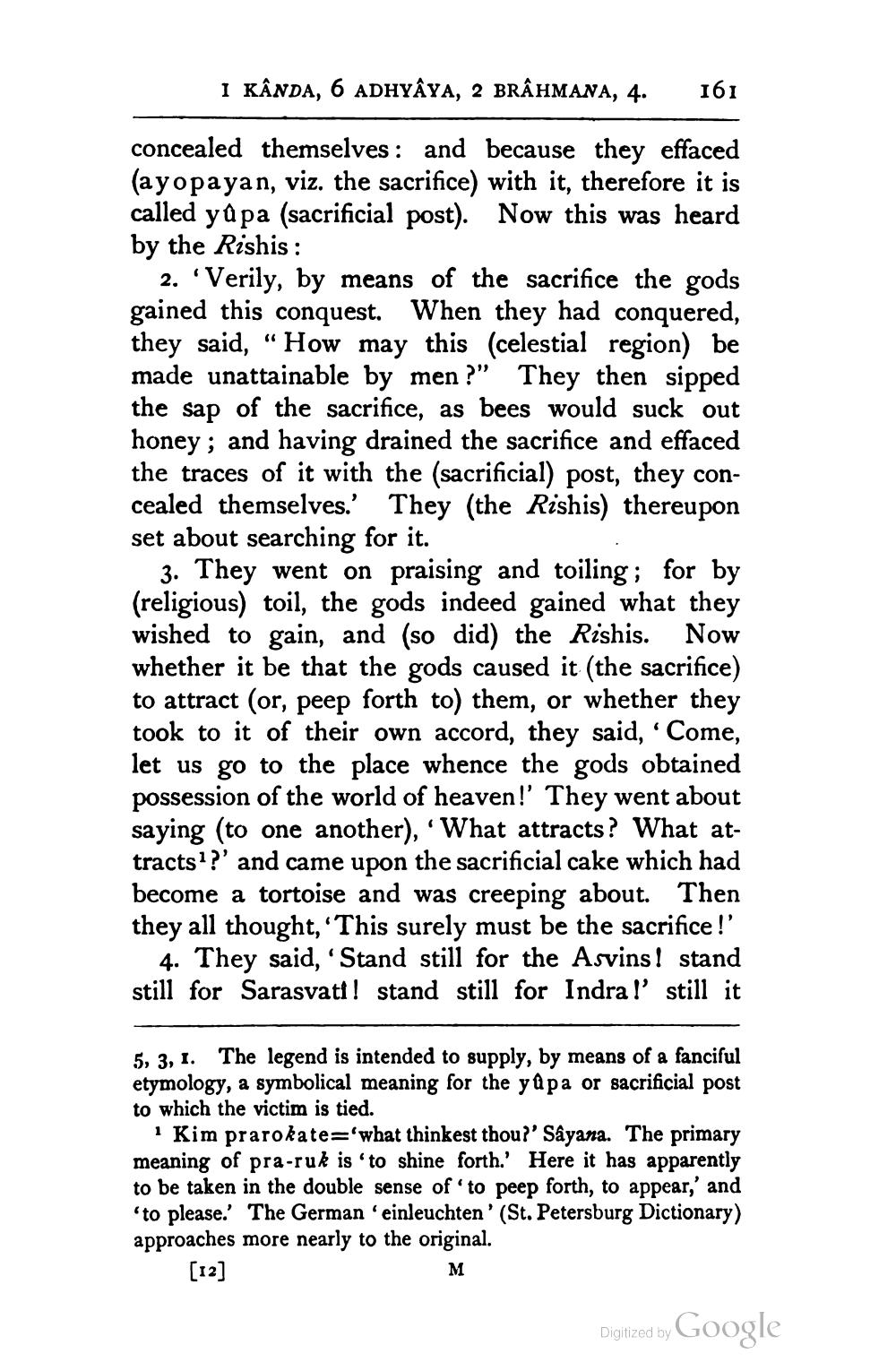________________
I KÂNDA, 6 ADHYAYA, 2 BRÂHMANA, 4.
161
concealed themselves: and because they effaced (ayopayan, viz. the sacrifice) with it, therefore it is called y pa (sacrificial post). Now this was heard by the Rishis:
2. Verily, by means of the sacrifice the gods gained this conquest. When they had conquered, they said, “How may this (celestial region) be made unattainable by men ?" They then sipped the sap of the sacrifice, as bees would suck out honey; and having drained the sacrifice and effaced the traces of it with the (sacrificial) post, they concealed themselves.' They (the Rishis) thereupon set about searching for it.
3. They went on praising and toiling; for by (religious) toil, the gods indeed gained what they wished to gain, and (so did) the Rishis. Now whether it be that the gods caused it (the sacrifice) to attract (or, peep forth to) them, or whether they took to it of their own accord, they said, “Come, let us go to the place whence the gods obtained possession of the world of heaven!' They went about saying (to one another), 'What attracts? What attracts??' and came upon the sacrificial cake which had become a tortoise and was creeping about. Then they all thought, 'This surely must be the sacrifice!'
4. They said, 'Stand still for the Asvins! stand still for Sarasvati! stand still for Indra l' still it
5, 3, 1. The legend is intended to supply, by means of a fanciful etymology, a symbolical meaning for the yüpa or sacrificial post to which the victim is tied.
Kim prarokate='what thinkest thou?' Sayana. The primary meaning of pra-ruk is 'to shine forth.' Here it has apparently to be taken in the double sense of 'to peep forth, to appear,' and 'to please.' The German 'einleuchten' (St. Petersburg Dictionary) approaches more nearly to the original. [12]
M
Digitized by Google




